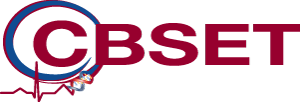 Join CBSET at the at the SOT 61st Annual Meeting and ToxExpo, March 27-31, in San Diego, CA. (Note: All individuals are required to register to attend the in-person SOT Annual Meeting and must provide proof of vaccination against Covid-19.)
Join CBSET at the at the SOT 61st Annual Meeting and ToxExpo, March 27-31, in San Diego, CA. (Note: All individuals are required to register to attend the in-person SOT Annual Meeting and must provide proof of vaccination against Covid-19.)
CBSET will be exhibiting in booth 2017. Please contact us if you would like to meet up in San Diego.
CBSET and our partner CILcare will be hosting a Continuing Education Course: "Best Practices for Successfully Assessing Ototoxicity in Drug Development" on Sunday, March 27th, at 1:15 PM (PST).

Hearing loss is a major global health issue affecting 1.5 billion people worldwide. Prevalence is increasing dramatically: in 2050, one in four people will have some hearing impairment. Acquired hearing loss is attributed to different environmental factors, including aging, noise exposure, and intake of ototoxic medicines.
Ototoxicity resulting in inner ear damage is a leading cause of acquired hearing loss worldwide. About a billion people are at risk of avoidable hearing loss, according to the World Health Organization (WHO). This could be minimized or avoided by early testing of hearing functions in the preclinical phase. While the assessment of ototoxicity is well defined for drug candidates in the hearing field (i.e., required testing for drugs that are administered by the otic route and expected to reach the middle or inner ear during clinical use), ototoxicity testing is not required for the other therapeutic areas. Unfortunately, this has resulted in more than 200 ototoxic marketed medications.
This course will provide an interactive learning opportunity to understand the key considerations for determining a drug candidate’s ototoxicity. Discussions will focus on four aspects of ototoxicity: (1) the burden of ototoxicity, the physiopathology of hearing loss, and current therapeutic strategies to treat deafness; (2) why, when, and how to perform preclinical ototoxicity studies; (3) regulatory perspectives; and (4) ototoxicity case studies.
The target audience includes toxicologists involved in the development of potentially ototoxic drugs, pharmaceutical companies looking to develop or repurpose drugs for hearing disorders, and those seeking scientific and operational expertise to make sure that drug candidates do not affect auditory mechanisms.
Agenda:
- The Global Burden of Ototoxicity: Epidemiology, Physiopathology, and Therapeutic Strategies. Marie-Pierre Pasdelou, CILcare, Lexington, MA.
- Nonclinical Ototoxicity Testing Overview and Histopathologic Assessment in Nonclinical Studies. Marie-Pierre Pasdelou, CILcare, Lexington, MA.
- Hearing Loss, Ototoxicity, and the Importance of Adequate Testing in Nonclinical Safety Studies: A Regulatory Perspective. Christopher Toscano, US FDA/CDER, Silver Spring, MD.
- Evaluating Ototoxic Effects of Medical Devices for Tympanic Membrane Repair. Elaine Horn-Ranney, Tympanogen, Richmond, VA.
- How to Select the Best Candidate with Minimal Ototoxicity. Sven Hobbie, Universität Zürich, Zurich, Switzerland.
About the presenters:
Chairs:
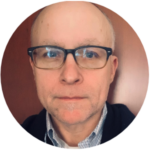 John Keating, DVM, DACVP, Director of Pathology at CBSET, has worked for several years in small animal veterinary practice, anatomic pathology training and academia, during which he collaborated and published extensively alongside colleagues in clinical veterinary medicine and basic sciences. At CBSET, he focuses on evaluating tissue responses related to novel biomedical devices and techniques, including inner ear diseases.
John Keating, DVM, DACVP, Director of Pathology at CBSET, has worked for several years in small animal veterinary practice, anatomic pathology training and academia, during which he collaborated and published extensively alongside colleagues in clinical veterinary medicine and basic sciences. At CBSET, he focuses on evaluating tissue responses related to novel biomedical devices and techniques, including inner ear diseases.
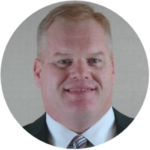 Donald Hodges, MSc, PhD, DSP, Senior Scientist at CBSET, is an experienced neuroscientist and safety pharmacologist with a demonstrated history of working in the pharmaceutical industry and an extensive background in model development, rodent behavioral models, and safety pharmacology.
Donald Hodges, MSc, PhD, DSP, Senior Scientist at CBSET, is an experienced neuroscientist and safety pharmacologist with a demonstrated history of working in the pharmaceutical industry and an extensive background in model development, rodent behavioral models, and safety pharmacology.
Speakers:
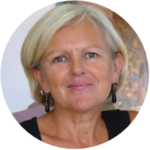 Marie-Pierre Pasdelou is Co-Founder and Chief Regulatory Officer for CILcare. With over 24 years’ experience in the pharmaceutical industry, mainly as a drug developer, she has worked in antithrombotics before moving towards aging, where she developed her interest and expertise in hearing disorders. She led an International Regulatory Department at Sanofi, where she oversaw the preparation of files for worldwide submission and the review of preclinical dossiers. She is also an expert in public health, integrated solutions, and mobile health.
Marie-Pierre Pasdelou is Co-Founder and Chief Regulatory Officer for CILcare. With over 24 years’ experience in the pharmaceutical industry, mainly as a drug developer, she has worked in antithrombotics before moving towards aging, where she developed her interest and expertise in hearing disorders. She led an International Regulatory Department at Sanofi, where she oversaw the preparation of files for worldwide submission and the review of preclinical dossiers. She is also an expert in public health, integrated solutions, and mobile health.
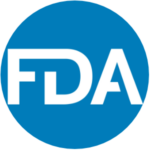 Christopher D. Toscano, PhD, DABT, is a nonclinical reviewer of the Office of New Drugs Center for Drug Evaluation and Research at the US Food & Drug Administration (FDA). The Office of New Drugs’s public health mission is to protect and enhance the health of the public through the review and evaluation of scientific data submitted by pharmaceutical manufactures in support of New Drug and Investigational New Drug applications (NDA/IND), and to determine if candidate drugs are safe and effective.
Christopher D. Toscano, PhD, DABT, is a nonclinical reviewer of the Office of New Drugs Center for Drug Evaluation and Research at the US Food & Drug Administration (FDA). The Office of New Drugs’s public health mission is to protect and enhance the health of the public through the review and evaluation of scientific data submitted by pharmaceutical manufactures in support of New Drug and Investigational New Drug applications (NDA/IND), and to determine if candidate drugs are safe and effective.
 Elaine Horn-Ranney, PhD, is the Co-Founder and CEO of Tympanogen, a medical company developing ear, nose, and throat (ENT) devices and wound-healing therapies designed to simplify existing procedures and improve treatment outcomes. She is an engineer and entrepreneur passionate about advancing healthcare through novel devices. She is experienced in synthesizing materials for tissue engineering and regenerative medicine applications, with a specialized focus on translating laboratory research into clinical products.
Elaine Horn-Ranney, PhD, is the Co-Founder and CEO of Tympanogen, a medical company developing ear, nose, and throat (ENT) devices and wound-healing therapies designed to simplify existing procedures and improve treatment outcomes. She is an engineer and entrepreneur passionate about advancing healthcare through novel devices. She is experienced in synthesizing materials for tissue engineering and regenerative medicine applications, with a specialized focus on translating laboratory research into clinical products.
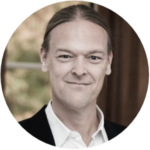 Sven N. Hobbie, PhD, is Co-Founder of Juvabis AG, a clinical-stage biopharmaceutical company specializing in anti-infective therapeutics. Sven has 20 years of hands-on research experience in microbiology and anti-infectives, having held positions at the Michigan State University, the Universities of Konstanz and Zurich, the Massachusetts Institute of Technology, and Visterra Inc. Throughout his career, Sven has significantly contributed to applied and translational science, mainly in drug discovery, on both biologics and small molecule therapeutics.
Sven N. Hobbie, PhD, is Co-Founder of Juvabis AG, a clinical-stage biopharmaceutical company specializing in anti-infective therapeutics. Sven has 20 years of hands-on research experience in microbiology and anti-infectives, having held positions at the Michigan State University, the Universities of Konstanz and Zurich, the Massachusetts Institute of Technology, and Visterra Inc. Throughout his career, Sven has significantly contributed to applied and translational science, mainly in drug discovery, on both biologics and small molecule therapeutics.
